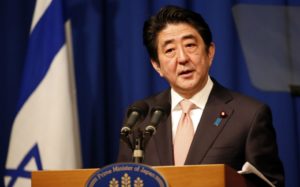Japan urged to take more refugees
 The United Nations refugee agency has urged Japan to resettle more asylum seekers putting pressure on one of the world’s wealthiest countries to help solve the global refugee crisis.
The United Nations refugee agency has urged Japan to resettle more asylum seekers putting pressure on one of the world’s wealthiest countries to help solve the global refugee crisis.
The call came after Japan offered refugee status to just three people in the first half of this year.
Japan is one of the developed world’s least welcoming countries for asylum seekers. It accepted 28 in 2016, despite applications from a record 10,091 people.
Since 2008 given sanctuary to just 152 refugees through the UN’s third-country resettlement scheme – mostly ethnic Karen people from Myanmar living in Thai and Malaysian refugee camps.
“The Japanese program is very small, about 20-30 refugees a year,” UN High Commissioner for Refugees Filippo Grandi told a recent news conference in Tokyo.
“I have asked the government to consider whether it could be expanded,” Mr Garndi said.
Japan’s reluctance to accept refugees mirrors a wider caution towards immigration in a nation where many people take pride in the nation’s ethnic and cultural homogeneity.
Japan’s intake of refugees has often drawn criticism from international human rights groups, and has been at odds with its traditional status as a major international financial donor to refugees agencies.
However, Japan’s donations to the UNHCR have dwindled recently.
In the year to October 2017, it was the fourth-largest donor giving $152 million, compared to the second-largest four years ago.
“Contributions from the government to the UNHCR have been declining a little bit every year since 2013,” Mr Grandi said.
“What I asked the government to consider is that the needs of refugees and displaced people are increasing.”
More than two million people fleeing wars or persecution have joined the ranks of the world’s refugees this year.
At the end of last year around 22 million refugees fell under the UNHCR’s mandate.
Japan says that many people claim asylum in Japan to find work, encouraged by access to renewable work permits for people applying for refugee status.
It officially rejects unskilled migrant workers, even as a fast-shrinking and ageing population blunts the potency of government efforts to spark the economy from two decades of sluggish growth and deflation.
The Justice Ministry, which oversees refugee recognition, is weighing steps including restrictions on work permits for asylum seekers to curb what it deems “abusive” applications.
Laurie Nowell
AMES Australia Senior Journalist












